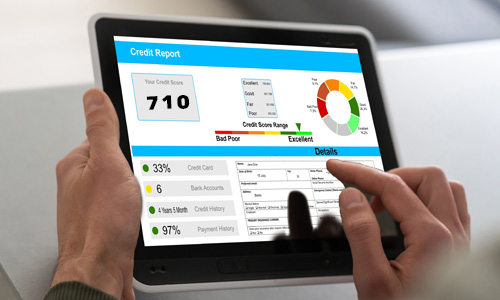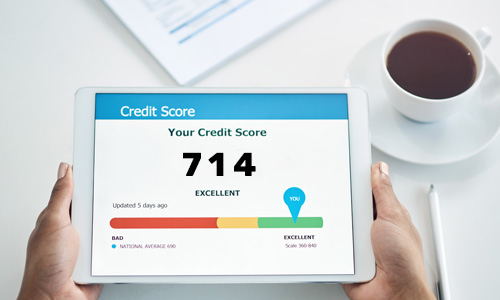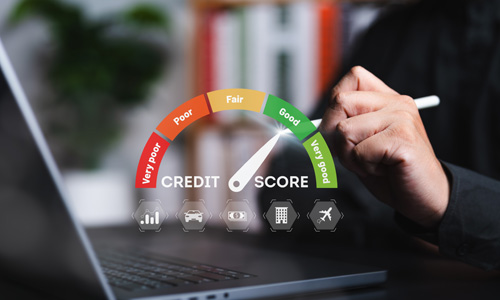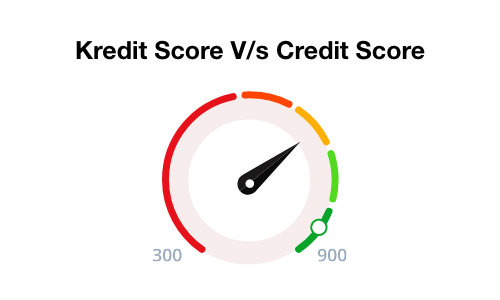What Affects Your Credit Score in UAE ?
A credit score in UAE indicates your creditworthiness. It affects not only the approval of your loan or credit card applications but also the applicable interest rates, terms, and more.
As credit scores are dynamic, you can certainly improve them even if you have a low one. However, to get the most out of your efforts and efficiently increase your score, it’s important to know what affects credit scores.
Keep on reading to find out what affects your credit score the most and how you can maintain or improve your score.
What Affects Your Credit Score the Most?
Here are the factors that have the most significant impact on your AECB credit score —
- History of Bill Payment
- Credit Usage
- Length of the Credit History
- Credit Mix
- Inquiries Related to Credit
History of Bill Payment
Affecting your UAE credit score the most, your record of paying bills has the highest weightage — 35% — in the calculation of your score. Thus, if you fail to pay your bills on time, your credit score can drop quickly.
This factor includes payments regarding —
- Credit cards
- Loans
- Utility bills and so on
The Al Etihad Credit Bureau (AECB), which calculates credit scores in UAE, also looks at how long the delays are as well as the frequency, i.e. whether you have a one-off missed payment or multiple ones. Additionally, events like bankruptcies can further dent your credit history.
| Check your AECB Credit Score |
Credit Usage
Also referred to as credit utilisation, this factor accounts for 30% regarding the calculation of your credit score in UAE. It simply refers to how much credit you are using against the total credit limit available to you.
For instance, assume that you have 2 credit cards with limits AED 10,000 and AED 5,000. The outstanding amount or the amount used by you for these cards is, say, AED 4,000 and AED 2,000, respectively.
Here’s how your credit utilisation will be calculated —
| Parameter | Credit Limit Used | Total Credit Limit |
|---|---|---|
| Credit Card A | AED 4,000 | AED 10,000 |
| Credit Card B | AED 2,000 | AED 5,000 |
| Total | AED 6,000 (4,000 + 2,000) | AED 15,000 (10,000 + 5,000) |
Credit Utilisation: (AED 6,000 / AED 15,000) x 100 = 40%
Tip: For a good credit score UAE, it’s advisable to keep your utilisation at 30% or less.
Here are some more points to keep in mind —
- Low credit utilisation doesn’t mean you have to keep it at 0! It’s actually good to use your credit limit to keep it active and practise your financial management. The key is to avoid using your credit limit excessively.
- Credit utilisation ratio is calculated by considering all your credit cards and loans. As we saw in the example above, it’s not computed for a particular card but rather the overall credit usage and the limit.
Length of the Credit History
Next in the list of what affects credit scores is the age or length of your credit history. Making up for 15% of your credit score UAE, it tells how long you have been using credit.
To calculate your credit history’s age, it’s important to consider the average age of your credit account (loans and credit cards) as well as that of your oldest loan or card.
A long credit history is good as it shows you’ve been able to handle credit instruments for some time without much obstacles. For this reason, experts recommend keeping your old credit cards active even if you don’t use them much.
Note: To keep old cards active, you can certainly use their auto debit feature for some regular payments.
Credit Mix
Your mix of credit accounts for 10% of your UAE credit score. By considering your credit mix, AECB basically checks how well you can handle different types of credit instruments — mainly revolving and instalment credit.
- Instalment credit — includes loans like personal loans, car loans, home loans, and so on
- Revolving credit — credit cards
Ideally, for a good mix, you can use at least one product from each category.
So if you’ve used only credit cards, you can get a loan for that next big purchase you’re planning for. Or, if you’ve taken only loans so far, try out a credit card for regular transactions.
Important: To improve your credit mix, you should not rush the decision and get a new credit product. Considering the potential consequences of failing to manage new credit, make sure that you understand its interest rates and fees and whether you can manage it as per your current income, budget, and more.
Credit Inquiries
How many credit inquiries have been made due to your actions also affects your score. Accounting for 10% of your credit score UAE, it mainly depends on how many credit applications you’ve made recently.
Keep in mind that there are two types of credit inquiries — soft inquiry and hard inquiry.
Soft inquiry is simply when you check your AECB credit score. A hard inquiry, meanwhile, is made when you apply for a loan or credit card and the bank pulls up your credit report to check your credit history.
Soft inquiries don’t affect credit scores. However, hard inquiries can reduce your score. While the impact of a single hard pull may not be much, many such inquiries in a short span can significantly bring down your credit score in UAE. It may also indicate to the AECB and banks that you are applying continuously because you are not able to responsibly manage your credit.
| Soft Inquiry Vs Hard Inquiry | |
|---|---|
| What is a Soft Inquiry | What is a Hard Inquiry |
Different Types of Accounts that Impact Credit Scores
Revolving Credit:
This is generally linked to credit cards, although some home equity debts are also included as revolving credit. These credit accounts offer a credit limit while making a minimum monthly payment based on the amount of credit used. These accounts tend to fluctuate and don’t have a fixed term.
Instalment Credit:
This type of credit consists of loans that allow you to borrow a certain sum of money while agreeing to make monthly payments until the loan is completely paid off. These credits include personal loans, student loans, and mortgages.
Service Account:
These include phone bills and utility bills that are not included in the credit file by default. The only way for a utility account to impact credit scores is if one did not make payments which caused the account to be forwarded to a collection agency.
Tips to Improve Your Credit Score
Having understood what affects credit scores in the UAE, let’s take a look at some tips and tricks to improve credit scores —
- Make Payments on Time: Remember that your bill payment history has the most significant impact on your credit score?
To maintain a good credit score or improve it, simply pay your bills and instalments on time. - Keep Credit Usage Low: Try to keep your credit utilisation below 30%.
- Have a Good Credit Mix: If you have only credit cards, get a personal loan for your next big purchase.
In case you are on the other extreme, i.e. only loans without any cards, you can try getting a credit card here. - Avoid Closing Old Credit Cards: Considering how important the length of your credit history is for your score, try keeping your oldest cards functional.
For instance, as we saw earlier, you can use your oldest cards for auto debit for regular bills.
Important: Don’t keep a card solely for your credit history either. If you believe that a particular credit card is affecting your finances (like high interest rates, for instance), you can close it. - Keep Your Credit Applications in Check: As we discussed before, credit card or loan applications lead to hard inquiries. These inquiries can negatively affect your credit score.
To avoid the impact of multiple hard inquiries, don’t apply for multiple loans or credit cards in one go. - Check for Errors in Your Credit Report: Incorrect details in your credit report can also hurt your score. If you spot any incorrect entry in your report, get it corrected by the AECB.
In a Nutshell
Credit scores prove vital in getting a loan approved or getting the most favourable interest rates. However, one need not obsess over them in the expectations of an ideal score that will get you brownie points from the lenders. As long as you manage your credit with some discipline, your score will be credit-worthy.
| Credit Score for different types of Loan | ||
|---|---|---|
| Credit Score for Personal Loan | Credit Score for House Loan | Credit Score for House Loan |

More From Credit Score
- Recent Articles
- Popular Articles












